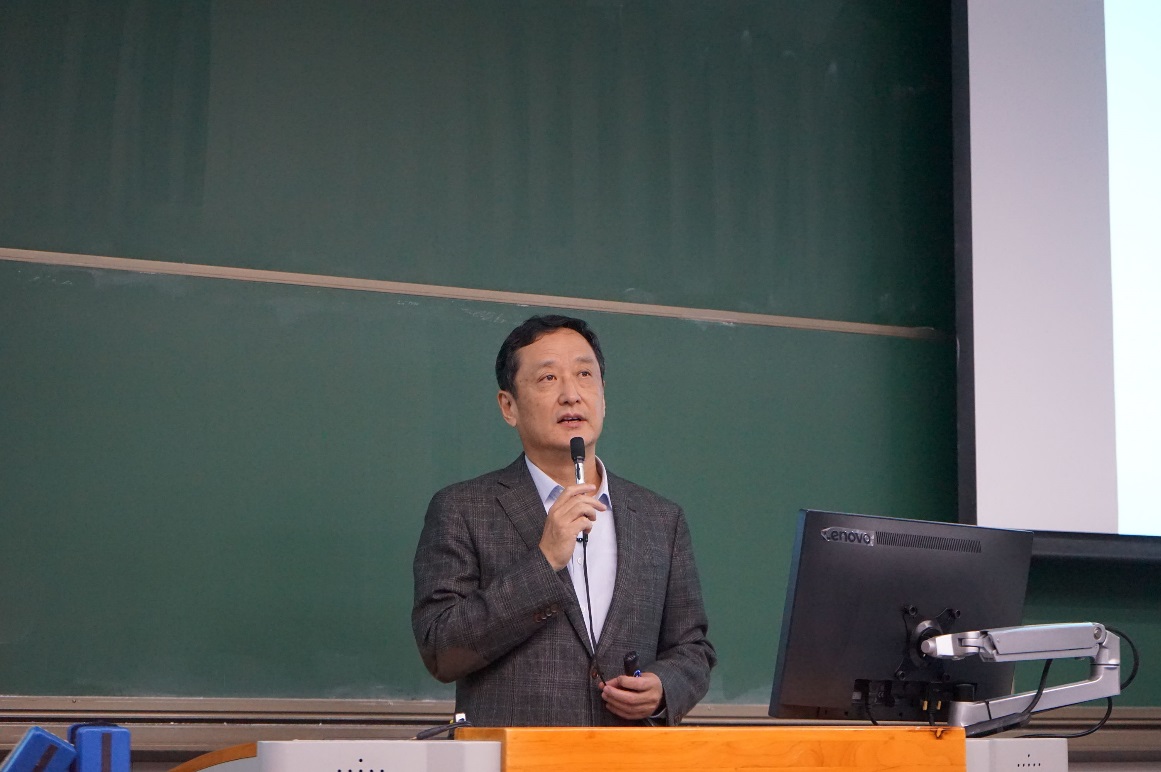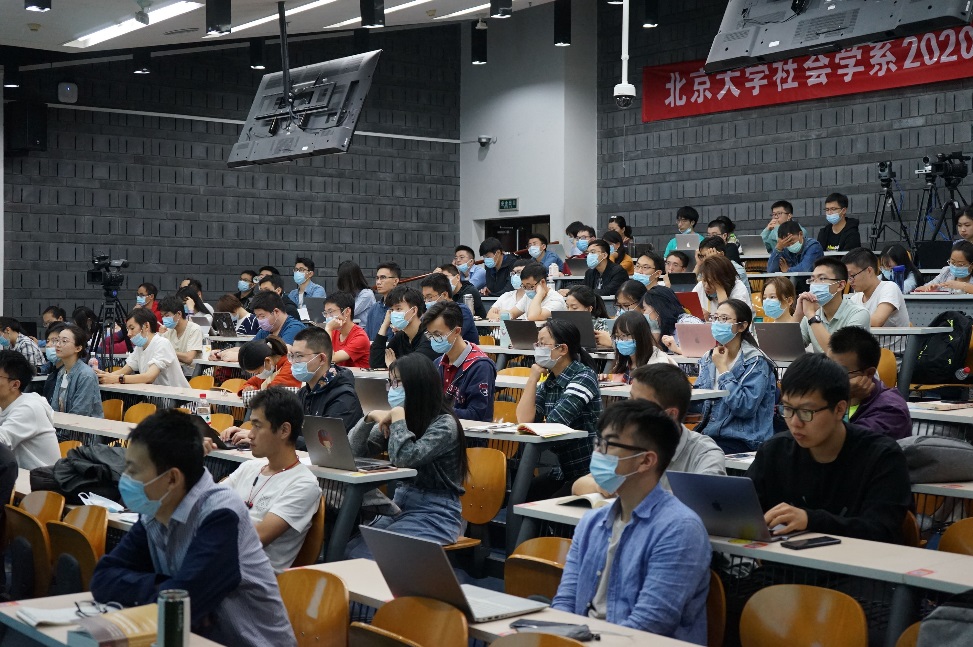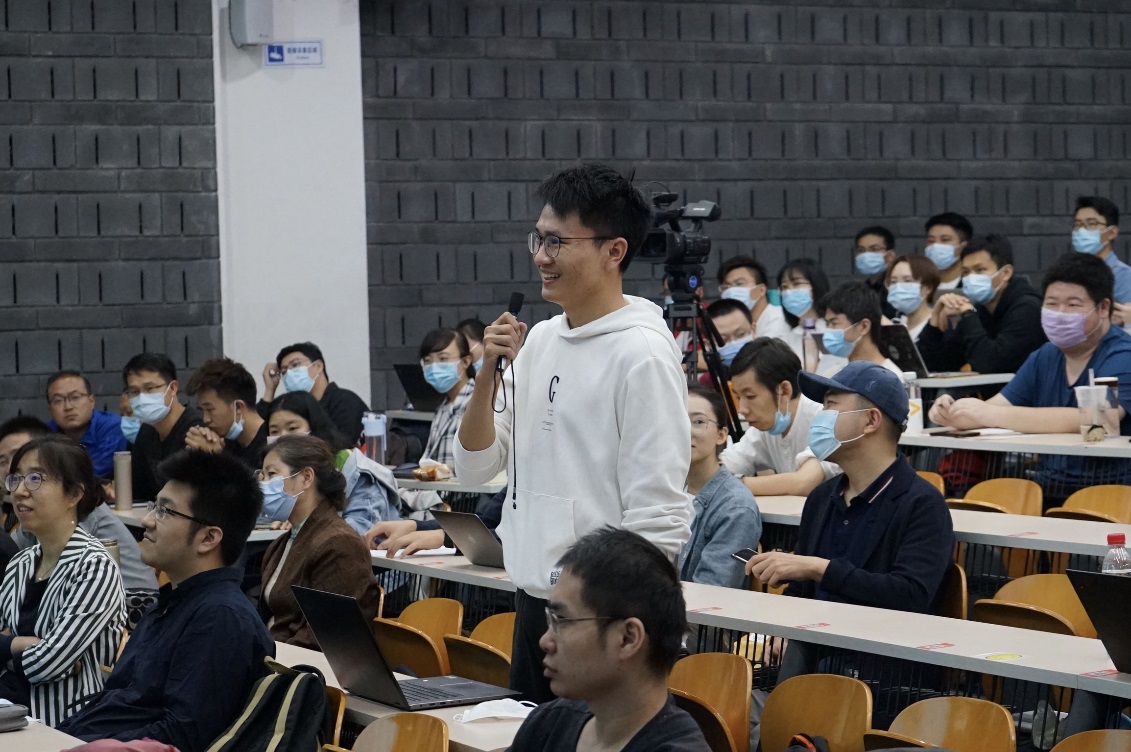Wang Yizhou gives lecture on opportunities and challenges of China’s diplomacy in new era
Oct 04, 2020
Peking University, October 4, 2020: As China is entering a new era, it is taking up a more significant role in the international community. How should China prepare itself and overcome the difficulties along its way? Professor Wang Yizhou from the School of International Studies at Peking University gave a lecture on the characteristics and contexts of China’s diplomacy in the new era, as well as the opportunities, challenges, and responsibilities that China has.
Wang Yizhou at the lecture
Starting from a historical and dialectical perspective, Wang Yizhou pictured the history and background of diplomacy of China. During the first 30 years after the establishment of the People’s Republic of China, “revolution” and “warrior” were respectively defined as the theme and image of the first phase of China’s diplomacy. They were then changed into “development” and “developer” during the early stage of China’s reform and opening up. As China has come to the third phase of its diplomacy, China puts more significance on the role of a leading nation and establishes new goals for its diplomatic work. With the diplomatic breakthroughs at the turn of the century and the Belt and Road Initiative, China’s diplomacy reflects a transformation from “bringing in” to “going global”.
During the lecture
Wang then analyzed the challenges and opportunities brought by the new era towards China’s building of national defense, economic development, and interests of the people. He emphasized that these opportunities always come with the responsibilities and risks borne by a leading nation, which explains why the role of China has to change from a leading nation in economy to a great country with benevolence and wisdom in the global arena. Seeing the above, Wang said China should enhance its soft power by demonstrating the abilities of China’s diplomats and promoting the quality and status of Chinese delegates in the UN. While improving its international image, China needs more representatives and stories from the vulnerable groups. China can also increase the transparency and credibility when planning, implementing, and evaluating foreign policies, as well as conducting comprehensive evaluations and necessary adjustments towards those policies.
Q&A session
Last but not least, Wang reminded that in addition to the optimistic landscape in this new era of diplomacy, “black swans” might be seen in the coming future. China is now facing brand new opportunities and challenges, and we, this generation, should take these as our responsibilities. Wang encouraged students of Peking University to get prepared for the upcoming opportunities and challenges. With regard to the questions posed by students, Wang answered from multiple perspectives, such as the self-reflection of a leading nation, awareness of unexpected development, development of international relations, and the complexity of international involvement.
Written by: Li Kar Hing
Edited by: Zhou Yijing
Source: PKU News (Chinese)


